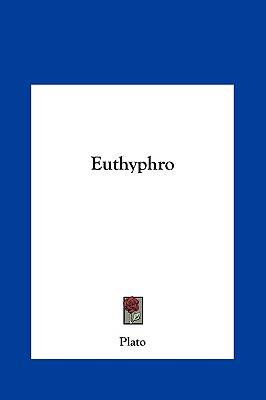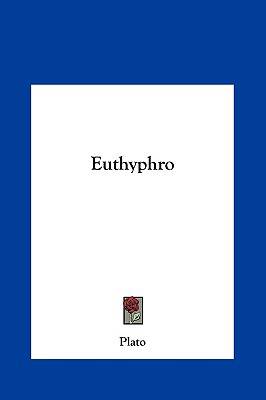
- Afhalen na 1 uur in een winkel met voorraad
- Gratis thuislevering in België vanaf € 30
- Ruim aanbod met 7 miljoen producten
- Afhalen na 1 uur in een winkel met voorraad
- Gratis thuislevering in België vanaf € 30
- Ruim aanbod met 7 miljoen producten
Zoeken
Omschrijving
Euthyphro is a philosophical dialogue written by the ancient Greek philosopher Plato. The dialogue takes place between Socrates and Euthyphro, a religious expert who has come to prosecute his own father for murder. Socrates questions Euthyphro on the nature of piety and morality, and the two engage in a back-and-forth debate about the definition of these concepts. Throughout the dialogue, Socrates challenges Euthyphro's assumptions and beliefs, ultimately leading to a deeper understanding of the nature of piety and morality. The dialogue also touches on themes of justice, the role of the gods in human affairs, and the limits of human knowledge. Euthyphro is considered a classic work of Western philosophy and is often studied in introductory philosophy courses. It is also notable for its influence on later philosophical and theological debates, including the question of whether morality is based on divine command or independent of it.Euth. I am amused, Socrates, at your making a distinction between one who is a relation and one who is not a relation; for surely the pollution is the same in either case, if you knowingly associate with the murderer when you ought to clear yourself and him by proceeding against him. The real question is whether the murdered man has been justly slain.This scarce antiquarian book is a facsimile reprint of the old original and may contain some imperfections such as library marks and notations. Because we believe this work is culturally important, we have made it available as part of our commitment for protecting, preserving, and promoting the world's literature in affordable, high quality, modern editions, that are true to their original work.
Specificaties
Betrokkenen
- Auteur(s):
- Uitgeverij:
Inhoud
- Aantal bladzijden:
- 28
- Taal:
- Engels
Eigenschappen
- Productcode (EAN):
- 9781161430561
- Verschijningsdatum:
- 23/05/2010
- Uitvoering:
- Hardcover
- Formaat:
- Genaaid
- Afmetingen:
- 178 mm x 254 mm
- Gewicht:
- 276 g

Alleen bij Standaard Boekhandel
+ 89 punten op je klantenkaart van Standaard Boekhandel
Beoordelingen
We publiceren alleen reviews die voldoen aan de voorwaarden voor reviews. Bekijk onze voorwaarden voor reviews.











